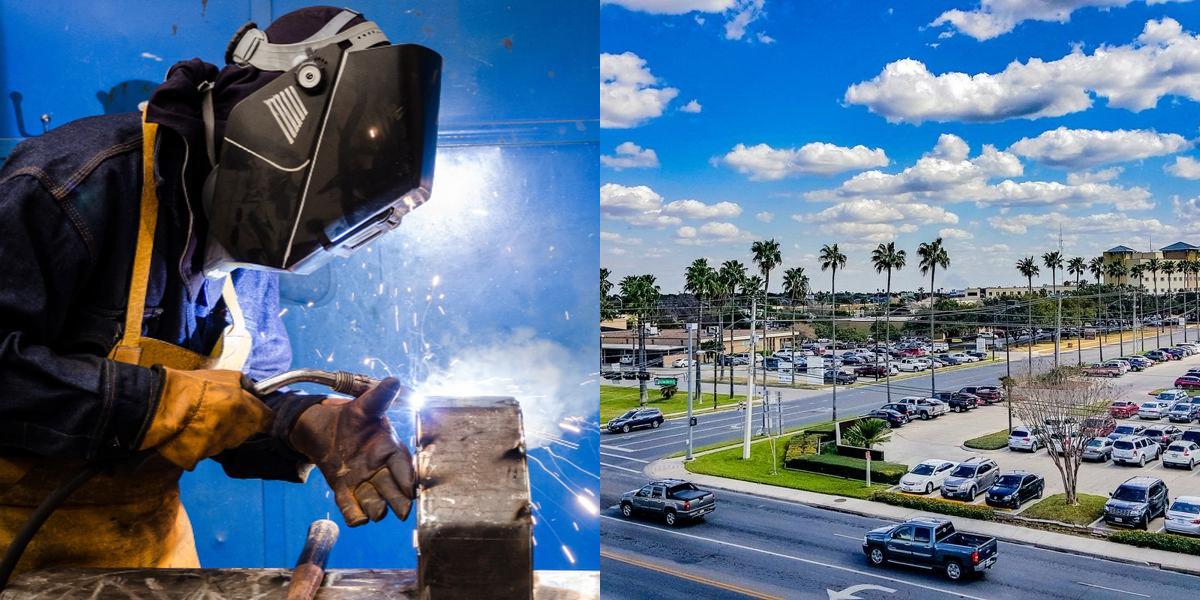How to Become a Welder in Texas (2024)

Are you interested in launching a high-paying career as a certified welder in Texas? Know more about the opportunities for skilled welders across industries like oil and gas, construction, manufacturing, and aerospace! This blog covers everything you need to know about becoming a professional welder. Discover how to start your journey in this in-demand trade, where experienced welders can earn $75,000+ annually!
Key Points
- Certified Welders are skilled trade professionals who use advanced welding processes and techniques to join metals in critical industrial applications.
- Texas welding certification requirements include: completing a high school diploma/GED, graduating from an accredited welding program, passing AWS certification tests, and obtaining specialized certifications like API for pipeline welding or AWS D1.1 for structural steel.
- Welding schools in Texas range from quick certification ($2,000-$5,000) to associate degrees ($15,000-$25,000).
- Texas welders earn competitive salaries averaging $53,410 annually ($25.68 per hour), with specialized welders earning $75,000-$100,000+.
How much does a Welder make?
The average salary for a welder can vary depending on factors such as experience, location, and industry. According to the U.S. Bureau of Labor Statistics (BLS), the median annual wage for welders, cutters, solderers, and brazers was $48,940 in May 2023. The lowest 10 percent earned less than $36,830, and the highest 10 percent earned more than $72,970. In Texas, the average salary for welders, cutters, solderers, and brazers was $53,410 per year.
Starting salaries for welders can vary greatly. Entry-level welders with little to no experience may start at or near the lower end of the salary range. However, as they gain experience and develop their skills, their earning potential increases.
Frequently Asked Questions
How long does it take to get certified as a welder in Texas?
Entry-level welding certification programs take 3-8 weeks while comprehensive welding technology programs require 6-18 months. Associate degrees in welding technology typically take 2 years.
How much does it cost to become a welder in Texas?
Entry-level welding programs range from $5,000 to $8,000, while comprehensive welding technology programs cost between $12,000 and $15,000.
Do welders make good money in Texas?
Texas consistently ranks among the top-paying states for skilled welders! Entry-level certified welders start at $35,000-$45,000 annually, while experienced welders earn $53,410-$75,000+!
How much do welders make in Texas?
Certified welders in Texas earn an average salary of $53,410 per year, based on data from the U.S. Bureau of Labor Statistics (BLS). This figure represents the median wage for welders, cutters, solderers, and brazers, and can vary depending on experience, industry, and specific job roles.
Do I need a license to weld in Texas?
While a welding license isn't mandatory in Texas, specific industries or jobs may require AWS certifications to meet safety and skill standards.
How long is welding school in Texas?
Welding programs in Texas can be fast-track certification programs that take 3-8 weeks ($2,000-$5,000) while certificate programs run 6-12 months ($8,000-$12,000). Associate degrees in Welding Technology can take 18-24 months ($15,000-$25,000) and include advanced techniques plus business courses.
Final Thoughts
Becoming a certified welder opens up many exciting opportunities across different industries, from construction and manufacturing to oil and gas. Your welding skills will always be in demand, so keep your skills and certifications up to date to stay competitive. Network with other professionals and explore various career paths to find the one that suits you best. With dedication, hard work, and the right training, you can build a rewarding career in welding.
Are you thinking about a job change or wanting to learn more about different career paths? Feel free to check out these additional articles:

Stephanie Dayak is the go-to person for everything related to automation and integrations at Dreambound. As a Certified Tax Technician turned tech whiz, her sharp eye for detail and passion for efficiency become evident in every project she undertakes. When not solving tech puzzles, she's out exploring the local food scene, cozying up with her dogs, or plugged into a thought-provoking podcast. She's an ardent believer in mixing fun with functionality!





